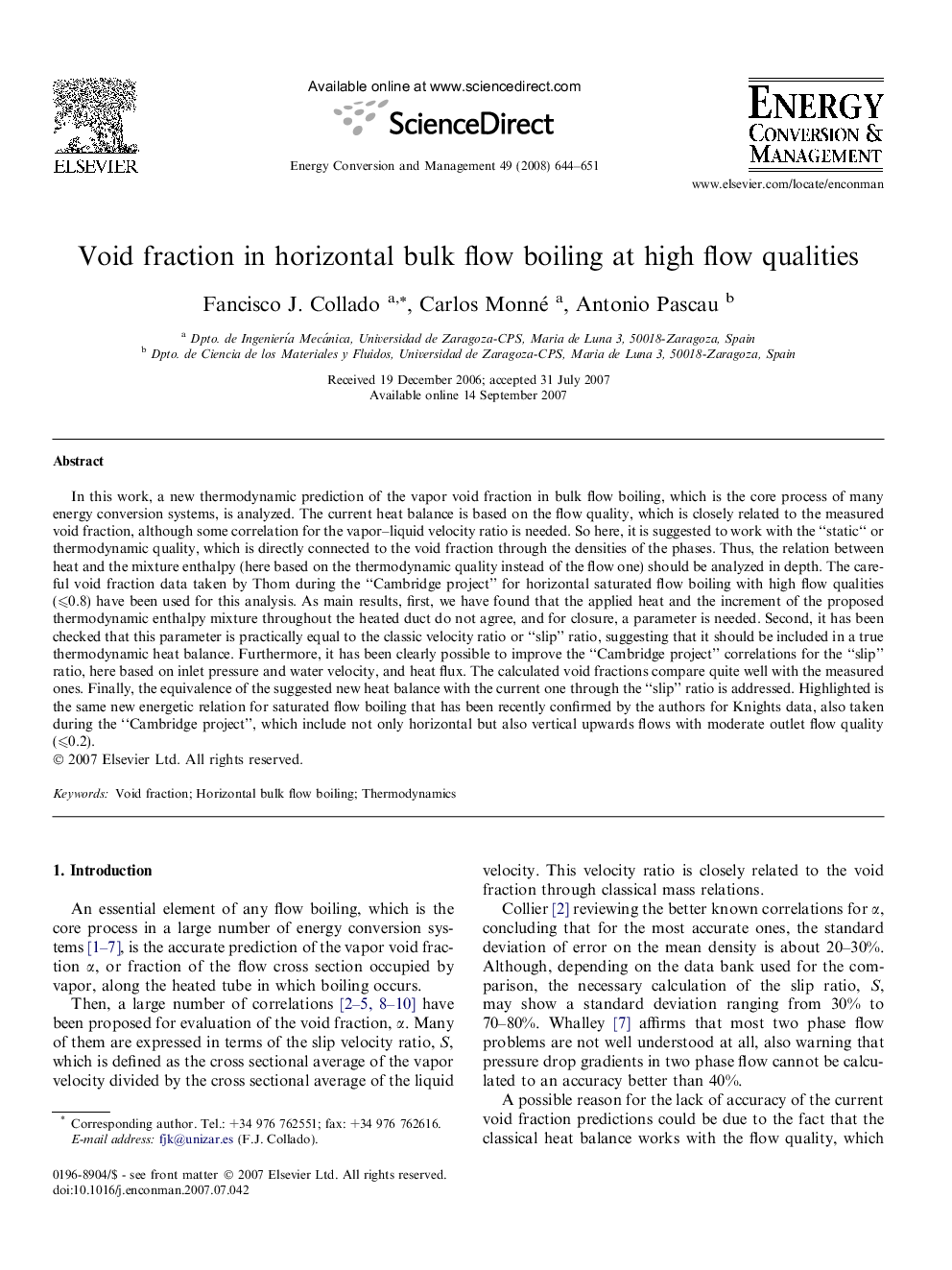| Article ID | Journal | Published Year | Pages | File Type |
|---|---|---|---|---|
| 772842 | Energy Conversion and Management | 2008 | 8 Pages |
In this work, a new thermodynamic prediction of the vapor void fraction in bulk flow boiling, which is the core process of many energy conversion systems, is analyzed. The current heat balance is based on the flow quality, which is closely related to the measured void fraction, although some correlation for the vapor–liquid velocity ratio is needed. So here, it is suggested to work with the “static“ or thermodynamic quality, which is directly connected to the void fraction through the densities of the phases. Thus, the relation between heat and the mixture enthalpy (here based on the thermodynamic quality instead of the flow one) should be analyzed in depth. The careful void fraction data taken by Thom during the “Cambridge project” for horizontal saturated flow boiling with high flow qualities (⩽0.8) have been used for this analysis. As main results, first, we have found that the applied heat and the increment of the proposed thermodynamic enthalpy mixture throughout the heated duct do not agree, and for closure, a parameter is needed. Second, it has been checked that this parameter is practically equal to the classic velocity ratio or “slip” ratio, suggesting that it should be included in a true thermodynamic heat balance. Furthermore, it has been clearly possible to improve the “Cambridge project” correlations for the “slip” ratio, here based on inlet pressure and water velocity, and heat flux. The calculated void fractions compare quite well with the measured ones. Finally, the equivalence of the suggested new heat balance with the current one through the “slip” ratio is addressed. Highlighted is the same new energetic relation for saturated flow boiling that has been recently confirmed by the authors for Knights data, also taken during the “Cambridge project”, which include not only horizontal but also vertical upwards flows with moderate outlet flow quality (⩽0.2).
